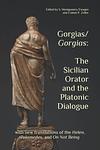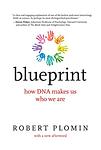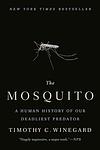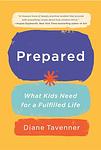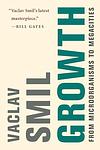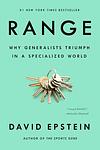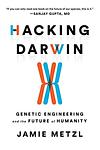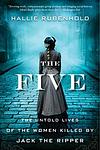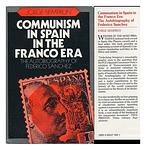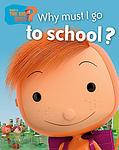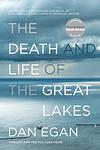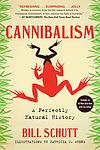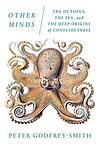The Greatest "Nonfiction" Books Since 1970
Click to learn how this list is calculated.
This list represents a comprehensive and trusted collection of the greatest books. Developed through a specialized algorithm, it brings together 300 'best of' book lists to form a definitive guide to the world's most acclaimed books. For those interested in how these books are chosen, additional details can be found on the rankings page.
Genres
Countries
Date Range
Reading Statistics
Click the button below to see how many of these books you've read!
Download
If you're interested in downloading this list as a CSV file for use in a spreadsheet application, you can easily do so by clicking the button below. Please note that to ensure a manageable file size and faster download, the CSV will include details for only the first 500 books.
Download-
1576. Gorgias/Gorgias : The Sicilian Orator And The Platonic Dialogue by Coleen P. Zoller, Jurgen R. Gatt, S. Montgomery Ewegen
This book provides a comprehensive analysis of the Platonic dialogue centered on the figure of Gorgias, a renowned Sicilian orator and sophist. It delves into the philosophical conversations between Socrates and Gorgias, along with other interlocutors, exploring themes such as rhetoric, justice, and the nature of the good life. The text examines the intricacies of Socratic dialectic and the contrast between philosophical inquiry and the art of persuasion practiced by sophists. Through this exploration, the book sheds light on the enduring questions about the relationship between power, knowledge, and ethics in the context of human discourse and action.
-
1577. Loonshots by Safi Bahcall
This book explores the science of innovation, focusing on how small, seemingly insignificant ideas (loonshots) can lead to industry-changing breakthroughs. The author, a physicist and biotech entrepreneur, delves into the dynamics that allow these radical ideas to flourish, drawing on a range of historical and contemporary examples. He introduces the concept of phase transitions to explain how organizations can balance the need for innovation with the maintenance of their core operations. Through engaging storytelling and rigorous analysis, the book provides insights into how leaders and teams can nurture groundbreaking innovations while sustaining their growth and success.
-
1578. Blueprint by Nicholas A. Christakis
This book delves into the fascinating realm of human social behavior, arguing that despite the vast diversity of societies, there exists a common structure to how humans form relationships and communities. The author, a renowned sociologist and physician, uses a blend of historical evidence, evolutionary biology, and sociology to demonstrate that certain social patterns are ingrained in our biology. Through an exploration of friendship, cooperation, and the inherent tendency towards creating social networks, the book posits that these universal patterns of social interaction have played a crucial role in our species' survival and success. It presents a compelling case for the existence of a social blueprint that shapes our interactions and the societies we build, suggesting that understanding this blueprint is key to addressing contemporary social challenges.
-
1579. Good Economics For Hard Times by Abhijit V. Banerjee, Esther Duflo
This book delves into the pressing economic challenges of our time, offering insightful analysis and solutions grounded in rigorous research. The authors, both Nobel laureates, tackle issues such as immigration, inequality, and job automation, debunking common myths and presenting evidence-based strategies for fostering economic growth and reducing poverty. Through a blend of compelling narratives and empirical data, the book argues for the importance of nuanced, informed policymaking that prioritizes human well-being and sustainable development. It serves as a clarion call for economists, policymakers, and the general public to rethink how economic principles can be applied to address the complex problems facing society today.
-
1580. The Mosquito by Timothy C. Winegard
This book presents a compelling examination of how the mosquito has been a pivotal force in shaping human history. Through meticulous research, it uncovers the profound impact these tiny insects have had on wars, colonization, and the spread of diseases across continents. The narrative delves into the biological and ecological aspects of the mosquito, revealing how its role as a carrier of deadly pathogens like malaria, yellow fever, and dengue has influenced the outcomes of battles, the fates of empires, and the lives of billions of people. By weaving together historical events with scientific insights, the book offers a unique perspective on the mosquito's place in the world and its indelible influence on human civilization.
-
1581. The Moment Of Lift by Melinda Gates
This book is a compelling call to action for global gender equality, weaving together personal anecdotes, rigorous research, and powerful stories of women from around the world. The author, a philanthropist deeply involved in global development, shares her journey of understanding the critical role that empowering women plays in overcoming poverty and achieving societal growth. Through her experiences and the initiatives of her foundation, she highlights how issues such as access to contraceptives, education, and equal participation in the workforce are pivotal in lifting communities out of poverty. The narrative is both an eye-opening account of women's struggles and a hopeful testament to the transformative power of lifting women up.
-
1582. Prepared by Diane Tavenner
This book offers a transformative approach to education, focusing on preparing students for the real world rather than just academic success. The author, drawing from her extensive experience in education, outlines a model that emphasizes life skills, critical thinking, and emotional intelligence alongside traditional learning. Through personal anecdotes, research, and practical advice, the book advocates for a system that equips students to handle the challenges of adulthood, pursue their passions, and achieve personal and professional fulfillment. It serves as a guide for parents, educators, and policymakers on how to support children in becoming independent, capable, and compassionate individuals.
-
1583. Upheaval by Jared Diamond
This book delves into how nations cope with crises and the factors that determine their success or failure in overcoming them. By examining several countries' responses to profound upheavals, the author identifies a set of common challenges and solutions that can guide societies facing similar issues. Drawing parallels between personal psychological coping mechanisms and the ways countries navigate crises, the book offers a unique perspective on resilience, adaptation, and the critical choices that shape the destinies of nations. Through detailed case studies, it explores the complex interplay between national identity, societal flexibility, and the capacity for self-assessment, ultimately providing insights into the processes that enable societies to survive and thrive in the face of adversity.
-
1584. Growth by Vaclav Smil
This book provides a comprehensive exploration of growth in various domains, including biological, societal, economic, and technological realms. The author meticulously examines the principles and patterns of growth, from the microscale of organisms to the macroscale of human civilization. Through a detailed analysis, the narrative delves into the implications of unchecked growth, particularly focusing on the sustainability challenges it poses to the environment and future generations. The work is a thought-provoking synthesis that encourages readers to reconsider the conventional pursuit of growth, advocating for a more measured and sustainable approach to development across all facets of life.
-
1585. Tools And Weapons by Brad Smith
This book delves into the complex relationship between technology's rapid advancement and the societal, ethical, and legal challenges it brings. It explores how digital technology, while being a powerful tool for innovation and progress, also poses significant risks and responsibilities, particularly in areas such as privacy, cybersecurity, and digital surveillance. Through a series of insightful analyses and examples, the narrative underscores the urgent need for tech companies, policymakers, and individuals to work together in crafting regulations and solutions that balance technological growth with the protection of democratic values and human rights. The book serves as a call to action, emphasizing that the choices made today will shape the future of not just technology, but society as a whole.
-
1586. Range by David Epstein
This book challenges the conventional wisdom that early specialization is the only path to success, arguing instead for the value of broad experiences and experimentation. Drawing on a wide array of real-world examples and scientific research, it makes the case that individuals who embrace diverse interests and experiences are often more creative, more agile, and able to make connections their more specialized peers can't see. The narrative asserts that in a rapidly changing world, the ability to adapt and integrate information from multiple domains is not just an advantage but a necessity. Through compelling stories and data, the book encourages embracing a more versatile approach to learning and career development.
-
1587. Hacking Darwin by Jamie Metzl
This book explores the groundbreaking and rapidly advancing field of genetic engineering, focusing on how technologies like CRISPR are paving the way for human genetic enhancement and the potential eradication of hereditary diseases. It delves into the ethical, scientific, and political implications of gene editing, presenting a future where humanity has the tools to direct its own evolution. The author argues for the establishment of global standards to guide this powerful technology, emphasizing the need for a balanced approach that harnesses genetic engineering's benefits while mitigating its risks. Through a mix of scientific explanation, speculative future scenarios, and policy advocacy, the book aims to inform and prepare readers for a new era in human history.
-
1588. The Metaphysical Club: A Story of Ideas by Louis Menand
"The Metaphysical Club: A Story of Ideas" is a historical account of the development of pragmatism, one of America's most significant philosophical movements. The book explores the lives and intellectual journeys of four influential thinkers - Oliver Wendell Holmes Jr., William James, Charles Sanders Peirce, and John Dewey. The narrative centers around the Metaphysical Club, a conversational group these men formed in Cambridge, Massachusetts, in 1872. Through their discussions, they developed the pragmatist belief that ideas are not mere reflections of reality but tools for action and problem-solving. The book also examines how their ideas influenced American thought and policy in areas such as law, education, and social reform.
-
1589. The Piano Shop On The Left Bank by Thad Carhart
"The Piano Shop on the Left Bank" explores the charming world of a piano shop in Paris, where the author discovers an array of pianos and delves into the intriguing stories they carry. Through his interactions with the shop's owner and the diverse clientele, from enthusiasts to professionals, the author rekindles his passion for piano playing and gains profound insights into the history, craftsmanship, and music theory surrounding pianos. This narrative beautifully intertwines personal memoir with rich musical exploration, set against the picturesque backdrop of Parisian life.
-
1590. The Five by Hallie Rubenhold
"The Five" is a historical non-fiction book that delves into the lives of the five women who were infamously murdered by Jack the Ripper in the East End of London in 1888. The work challenges the long-standing myth that the victims were all prostitutes, instead painting a vivid picture of the harsh realities faced by women in Victorian England. Through meticulous research, the book reconstructs their personal histories, exploring their backgrounds, the societal conditions that contributed to their unfortunate fates, and the misogyny that has overshadowed their stories. The narrative serves as both a poignant tribute to these women and a critical examination of the historical narratives that have marginalized them.
-
1591. Communism In Spain In The Franco Era by Jorge Semprún
This book provides an in-depth analysis of the communist movement within Spain during the rule of Francisco Franco, a period marked by authoritarianism and political repression. It delves into the complexities and challenges faced by communists who operated underground, striving to resist and eventually overthrow Franco's regime. Through a blend of historical documentation and personal narratives, the work sheds light on the ideological struggles, internal conflicts, and the broader impact of communism in Spain's fight for democracy and social justice. The narrative not only explores the political landscape of the era but also examines the human aspect of resistance, highlighting the resilience and sacrifices of those who fought against tyranny.
-
1592. What's The Big Idea? by Oscar Brenifier
"What's The Big Idea?" is a philosophical book aimed at engaging children in deep and meaningful conversations about everyday concepts. Through a series of dialogues, the book explores various philosophical questions that encourage young readers to think critically about the world around them. Each topic is presented in a simple yet thought-provoking manner, making complex ideas accessible and intriguing to the young mind. The book serves as a tool to foster curiosity, dialogue, and reflection among children, helping them to develop a philosophical perspective on life from an early age.
-
1593. April 1865 by Jay Winik
"April 1865: The Month That Saved America" is a historical narrative that delves into the pivotal final month of the American Civil War, emphasizing how critical decisions and events in April 1865 helped to prevent the nation from fracturing permanently. The book explores key moments such as Robert E. Lee's surrender at Appomattox, Abraham Lincoln's assassination, and the lesser-known events that followed, which collectively helped to heal and reunite the country. Through detailed accounts and engaging storytelling, the author illustrates how the actions of a few individuals in the face of national crisis shaped the future of the United States, highlighting the delicate balance between war and peace, and the resilience of the American spirit.
-
1594. The Death And Life Of The Great Lakes by Dan Egan
The book explores the ecological history of the Great Lakes and the environmental challenges they face. It delves into the impact of invasive species, pollution, and overfishing, which have dramatically altered the aquatic ecosystems and threatened the lakes' health. Through a blend of scientific research and investigative journalism, the narrative highlights both the human-induced problems and the ongoing efforts for restoration and protection. The book serves as a critical examination of the balance between human activity and environmental preservation, emphasizing the importance of sustainable practices to safeguard these vital freshwater resources.
-
1595. Primera Persona by Margarita García Robayo
"Primera Persona" is a collection of autobiographical essays that delve into the author's experiences navigating the complexities of identity, migration, and cultural dislocation. With sharp wit and unflinching honesty, the author reflects on her life growing up in Colombia, her move to Argentina, and the challenges of establishing herself as a writer in a foreign land. The essays explore themes of family, memory, and the search for belonging, offering a poignant and often humorous look at the intersections of personal history and broader socio-cultural dynamics. Through her narrative, the author invites readers to consider the multifaceted nature of selfhood and the universal quest for connection and understanding.
-
1596. Astrophysics For People In A Hurry by Neil deGrasse Tyson
This book offers a concise and engaging overview of the fundamental concepts and discoveries in astrophysics. Aimed at busy readers who want to understand the universe but have limited time, it breaks down complex ideas about the cosmos into digestible pieces. Through a series of succinct chapters, the reader is taken on a journey through the scientific laws that govern the stars, planets, and galaxies, as well as the known and mysterious phenomena of the universe. The author's clear, witty style makes the vast and intricate subject of astrophysics accessible and enjoyable, providing insights into how the universe works and our place within it.
-
1597. A Moonless, Starless Sky by Alexis Okeowo
"A Moonless, Starless Sky" is a compelling non-fiction book that delves into the lives of ordinary individuals across Africa who are fighting against extremist ideologies and oppressive cultural practices. Through a series of gripping narratives, the book portrays the resilience and courage of people such as a young couple in Somalia battling against the terror of al-Shabaab, a woman in Nigeria who escapes from Boko Haram, and an Ugandan man challenging deeply entrenched traditions. These personal stories highlight the struggles and triumphs of those who confront and defy tyranny and violence, offering a nuanced exploration of resistance and the human spirit’s capacity for hope and redemption.
-
1598. Cannibalism by Bill Schutt
The book explores the natural history of cannibalism, the act of consuming individuals of the same species. It delves into the reasons behind cannibalistic behavior across various species, including humans, and challenges the taboo status of cannibalism in Western culture. By examining both the scientific aspects and the cultural perspectives, the book presents a comprehensive analysis of how and why cannibalism occurs in nature, revealing that it is often an adaptive strategy rather than a deviant behavior. The work also discusses the implications of cannibalism in terms of evolution and survival, providing a broad understanding of its role in the natural world.
-
1599. Notes On A Foreign Country by Suzy Hansen
"Notes on a Foreign Country" is an introspective exploration of American influence abroad and the complex realities of U.S. foreign policy, as experienced by an American journalist living in Istanbul. The book delves into the author's personal journey of discovering the often-unseen impacts of American interventions and cultural dominance while grappling with her own identity and preconceptions as an American. Through her travels across the Middle East and her interactions with locals, she gains a deeper understanding of the historical and contemporary geopolitical landscape, challenging her and, by extension, the reader's understanding of America's role in the world.
-
1600. Other Minds by Peter Godfrey-Smith
This book delves into the fascinating world of cephalopods, particularly octopuses, squids, and cuttlefish, to explore the nature and origins of consciousness. The author, a distinguished philosopher of science and a skilled scuba diver, draws parallels between the development of the human mind and the intelligence of cephalopods, which evolved independently. Through a blend of scientific research, philosophical inquiry, and personal encounters with these enigmatic creatures, the book examines the profound implications of cephalopod consciousness for our understanding of the mind and the evolution of intelligence across different species.
Reading Statistics
Click the button below to see how many of these books you've read!
Download
If you're interested in downloading this list as a CSV file for use in a spreadsheet application, you can easily do so by clicking the button below. Please note that to ensure a manageable file size and faster download, the CSV will include details for only the first 500 books.
Download